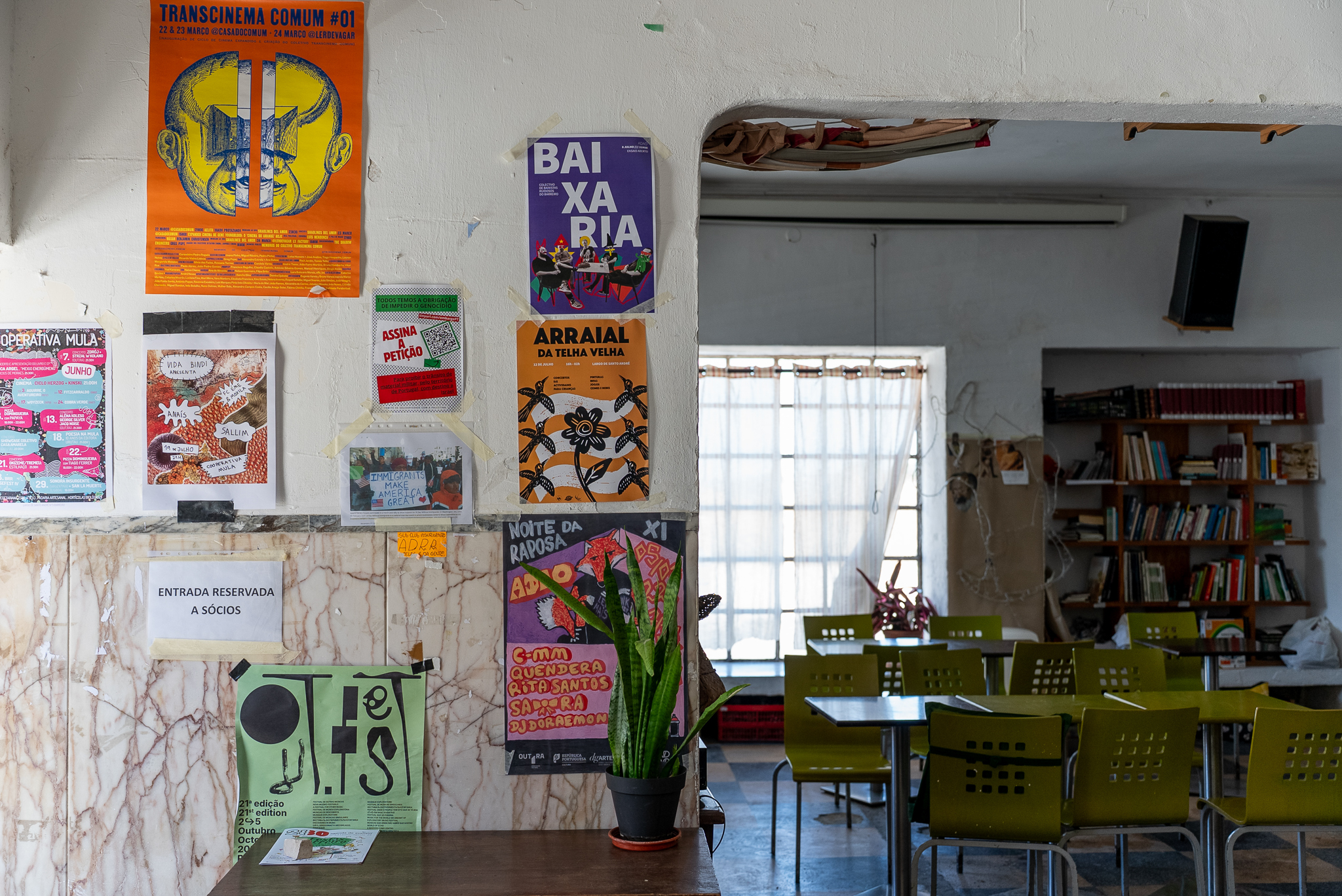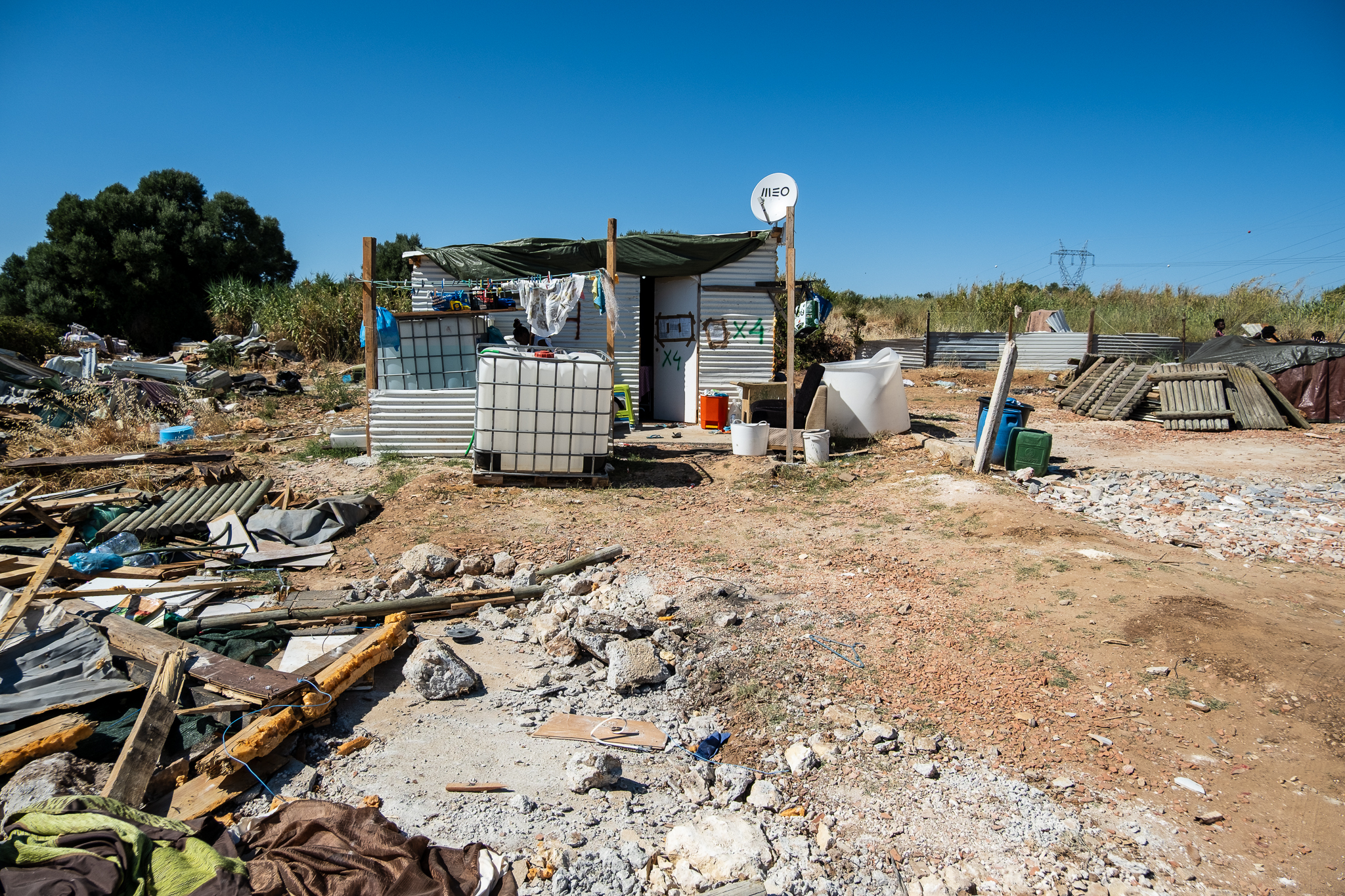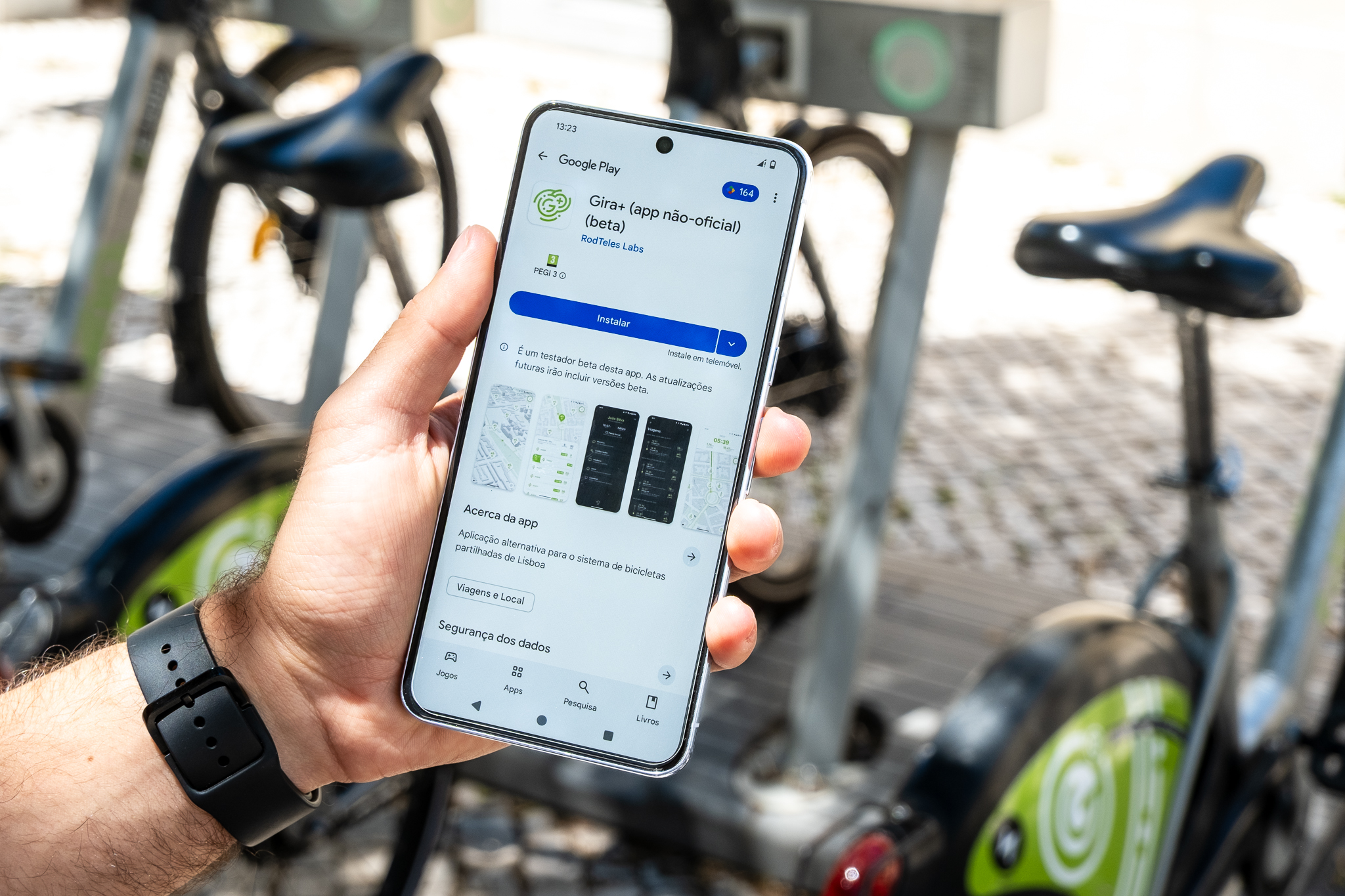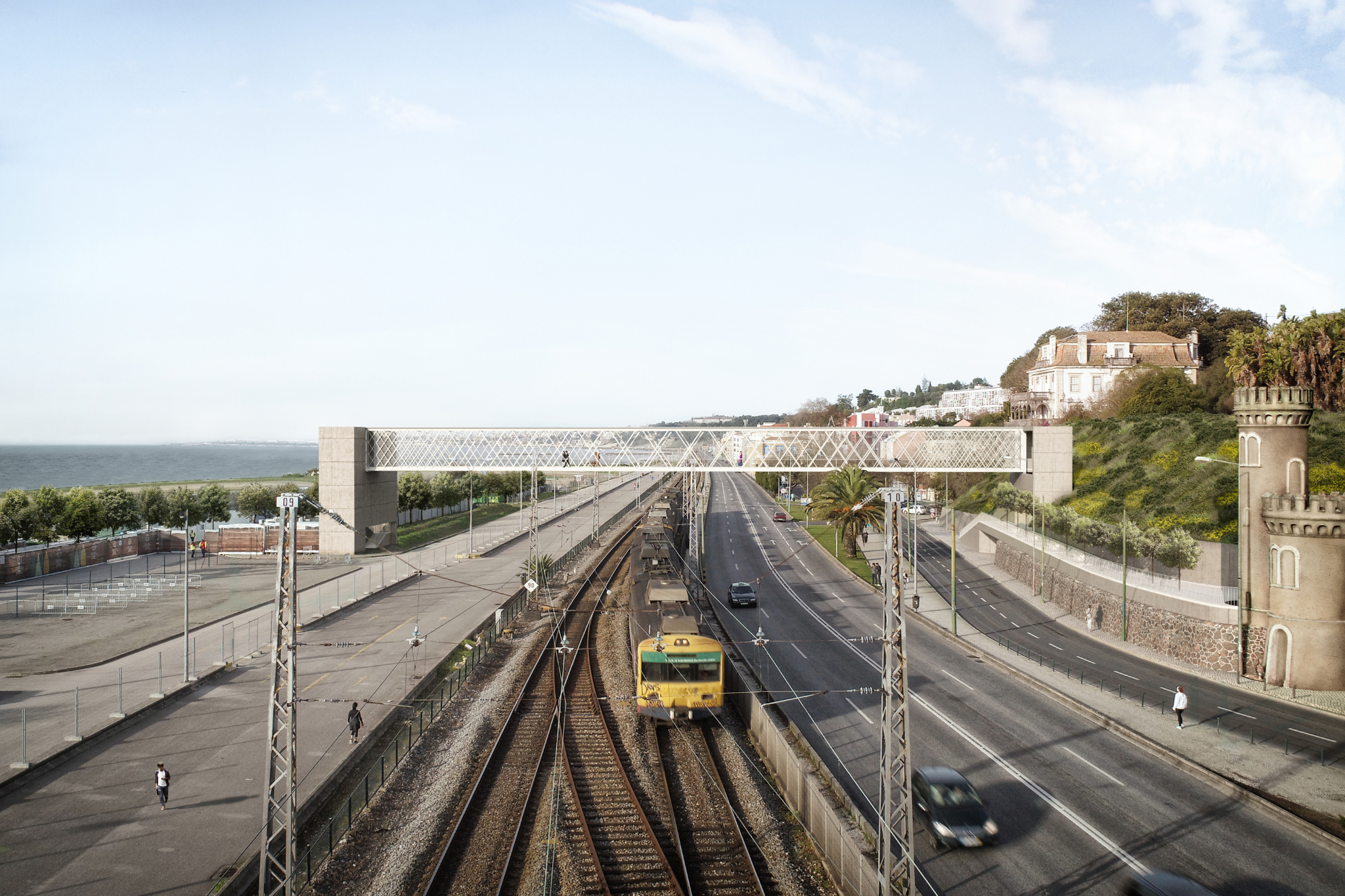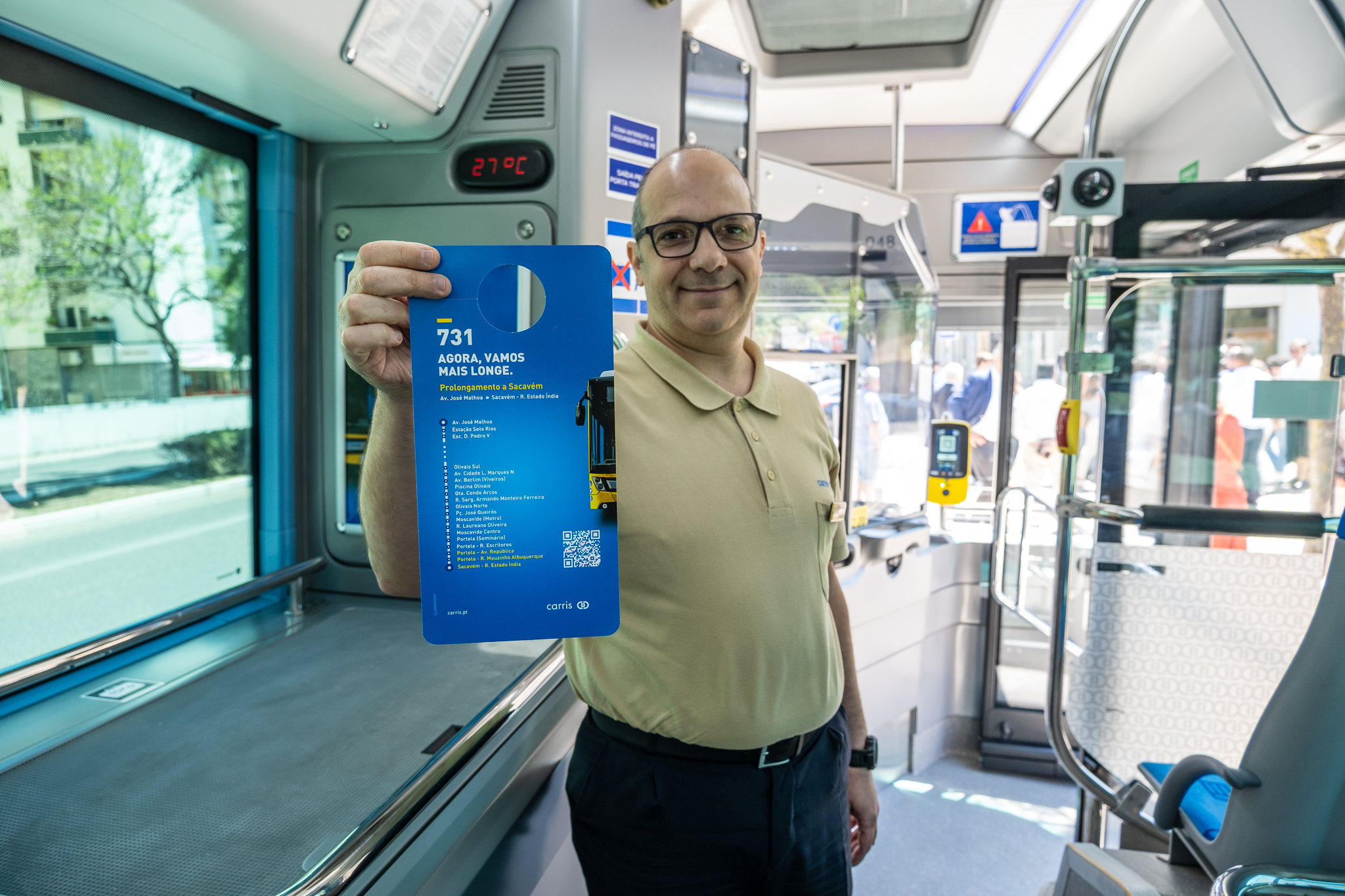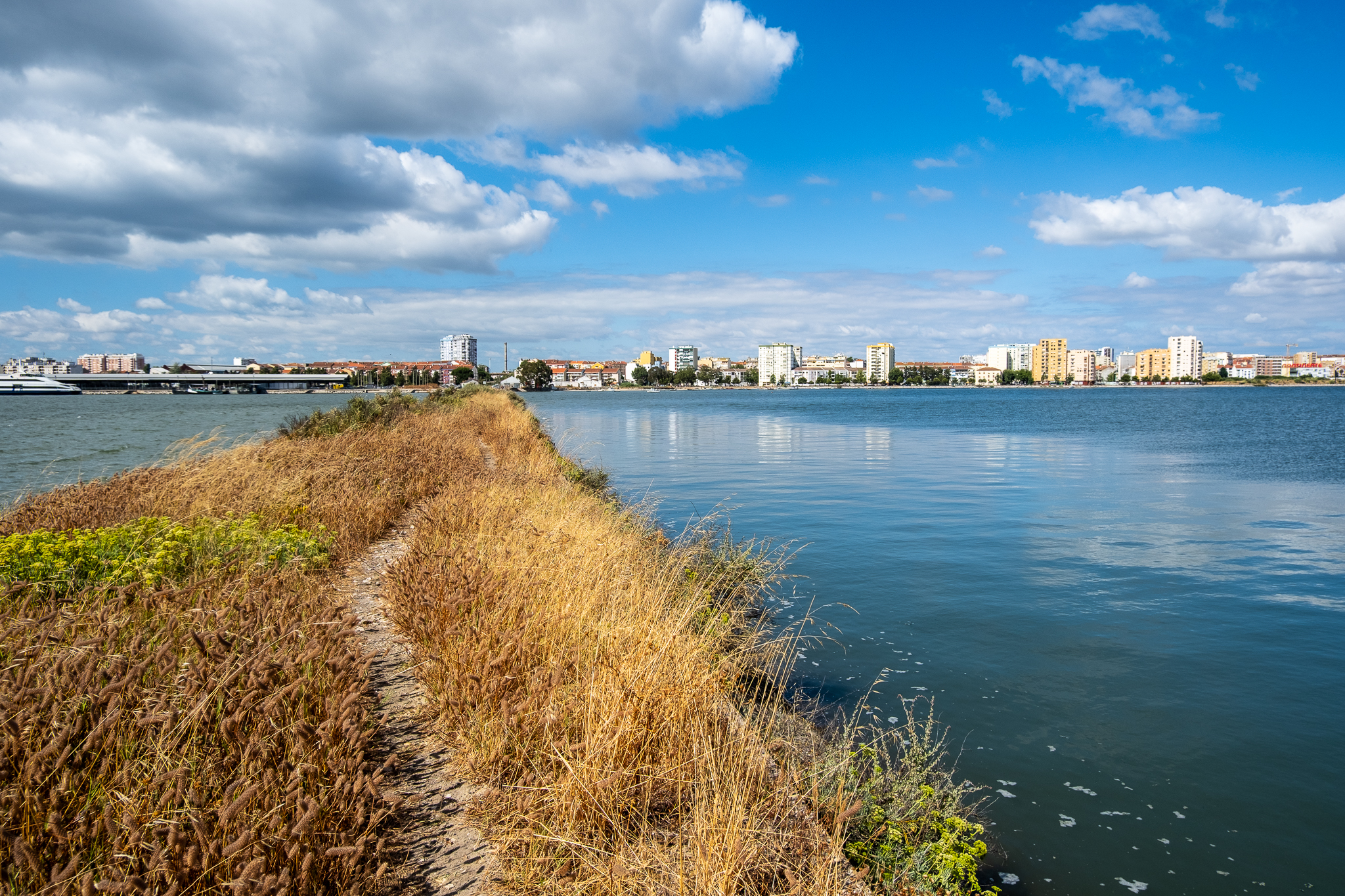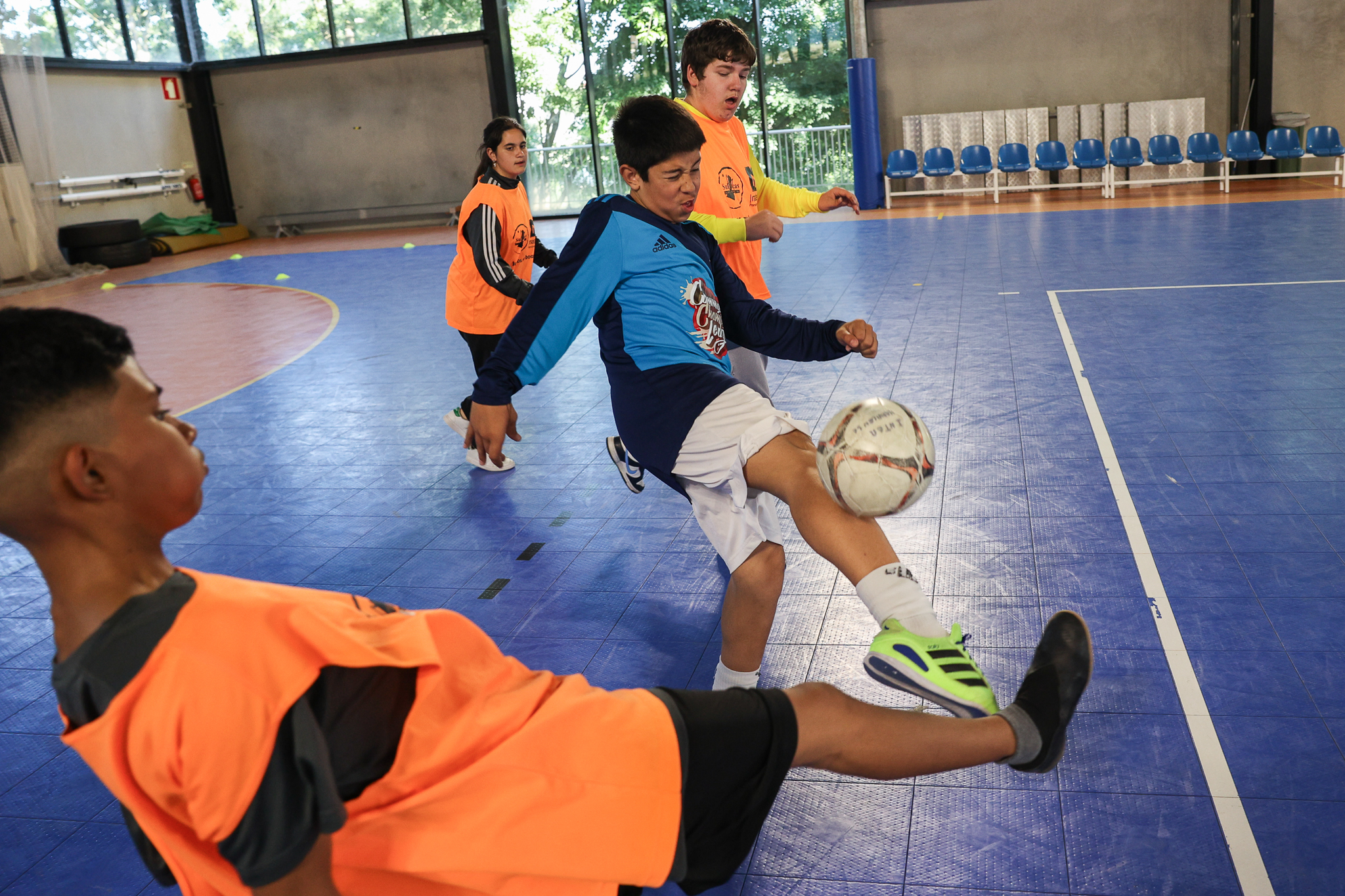Davide and André were looking for "design and architecture events in Lisbon" and couldn't find any with space to speculate and imagine futures, so they decided to create their own festival. The Gentler Futures Festival is for everyone who dreams of cities different from the ones we imagine.

This is sponsored content produced in partnership between LPP and the Gentler Futures Festivalorganized by the design studio BY THE END OF MAY.
Davide Onestini and André Trindade started two years ago to BY THE END OF MAYThey are a design studio with the aim of understanding how certain less common materials could be used as raw materials for construction or architecture. They believe that more local production and distribution chains are possible and also less environmentally burdensome. For the past year, they have been incubated at the Mouraria Innovation Center (CIM)and have now decided to launch a festival to get the city thinking about these issues and try to find people who, like them, also work at this intersection between manufacturing and sustainability.
"We've been looking for design and architecture events here in Lisbon, and we've found almost nothing. In terms of sustainability events, there are a few, but they're very corporate-oriented and with some greenwashing. So we decided to create our own event"Davide explains. "Design is not just product design or interior design. It goes a bit beyond that: we're not just thinking about the material, but how a material influences the system and how the system can change through that material, for example"adds André.
O Gentler Futures Festival is a mostly free initiative that will take place at the CIM, with a question as its motto: what could the road to a self-sufficient city look like? "We're going to talk about materials, food and energy, because when you talk about a locally productive and self-sufficient city, these are the three big themes"Davide explains.

For two days, this festival will work on a vision of a future in which urban communities are locally productive, rather than passive consumers, and self-sufficient, rather than dependent on centralized and distant systems. "It's imagining that if one day I need a chair, I can go to my street and find stores where chairs are being made from local resources, whether they are natural materials that are common in this area, or materials that have been reused from what we call garbage."the young designer exemplifies.
"In theory, this isn't just for simple things like a chair, a glass or a piece of ceramics, but it could also be for a computer. If one day, due to a war or another reason that leads to a breakdown in supply chains, and we stop producing computers on the other side of the world, with materials from the other side of the world, will a country like Portugal be left without computers? Do we stop working digitally?"

The work Davide and André do at BY THE END OF MAY is what they call speculative design. "Speculative design because we are speculating. Imagining futures and possibilities, and trying out paths"explains André. How "research and design studio" develop projects at the intersection of digital fabrication, biomaterials and handicrafts. "We want to understand the future of manufacturing and, in particular, in the context of locally productive, self-sufficient and regenerative cities"he adds. "And we do this by working with companies to understand how they can really change their business models to be more respectful of the environment and their social context."
"The aim is not to teach people, but to include people"
The Gentler Futures Festival will bring together national and international designers, makers, researchers, architects and creatives whose work is shaping the futures in which André and Davide would like to live: planet-centered, local, non-linear and post-consumerist. Experimental design and architecture projects will be presented, which seek to decentralize the means of production, imagine alternative non-linear production systems and put the needs of local communities and the planet above profit and economic growth. The program includes workshops, lectures, temporary exhibitions, projections, performances, music and much more. And it aims to raise questions, launch provocations and inspire new ones: about what we eat, how we build and the technologies we use.

At the Gentler Futures Festival, Bagaceira Project will tell us about how organic waste from cities can be used to produce high-value materials and Inês Coelho da Silva will show how urban spaces can be used to produce high-value materials. more edible. Rodrigo Borralho, a specialist in agroforestry, will talk about how to produce food in the city with few resources. The start-up Portuguese Upfarming will have a session on vertical farming to make the most of scarce space in cities. And, still on the food front, Slow Lab will show how we can use Lisbon's solar energy to cook.
On the other hand, the festival will also discuss how to reduce the impact of construction; we will learn about the examples of the MaTierra architecture studio and the Nada Novo association, which use ecological materials and reuse; Natura Matéria, which proposes the use of hemp in the construction of buildings; Or Studio8, which will show how it uses leftover demolitions in architecture and interior design to create new materials, Novonovo, which reuses marble to create lighting, or Prima Matters, which will talk about how leftover ceramics can be used to create new objects.
Also inviting reflection on materials and construction, Inês Barros will present a sculpture with biomaterials, and Sofia De=Francesco from Porto will show how DIY can be more accessible and collaborative through open-source design;
Speaking of open-source, it's important to note that technology also has a place in this festival. Megan Ammari, a designer and Artificial Intelligence (AI) researcher, will take us through futuristic scenarios for Lisbon through AI and Virtual Reality (VR); Marie Verdeil, a designer from Brussels, will talk about how we can have a web with fewer resources and energy; and the artist duo What A Mess will present some alternative scenarios for Lisbon, and in particular for the Mouraria neighborhood, through 3D simulations and with the help of the video game Fortnite.
"We wanted to create an event that is accessible and makes these issues more democratic"contextualizes André. "It's going to be an informal-style event, where basically the aim is not to teach people, but to include them." Participation in lectures, performances, exhibitions and screenings is free upon registration, and tickets for workshops can be purchased online at gentlerfutures.com. All proceeds go to support the guest projects, as well as enabling BY THE END OF MAY to keep the festival free and accessible.
"We want to reconnect people with materials"
The program was put together with artists and projects that Davide and André found inspiring and that they had been following for some time "through the net, through social networks". But the design duo is holding an open call until next Sunday to find initiatives you don't know about yet. E the Gentler Futures Festival will also be a chance for BY THE END OF MAY to show some of their work.


The duo started with paper, trying to understand how this raw material could be used for stiffer and more stable constructions, and are already studying other materials, such as coffee grounds and pistachio shells. "We're in the field of material research, of understanding how we can improve the qualities, for example, of paper and make it the most durable material, so that it's not always use and throw away, but also to create a certain connection to the material and have some respect for the material"explains André.
Whether it's the paper we throw away, coffee grounds or pistachio shells, BY THE END OF MAY's challenge is to understand how this waste could be treated in Lisbon or even in the Mouraria neighborhood, for example. And reused to produce new products locally. "This idea of reusing what we have in greater quantities within our cities and urban spaces, which are no longer natural resources - what we call raw materials more easily - and which have become urban waste, is transversal to several of our projects. And so we now have to start looking at urban waste and industrial by-products as raw materials."
"We stop taking responsibility for our waste as soon as we put it in the green, yellow and blue bins. After that, we don't care anymore because we think our job is done", points out.

The presence of BY THE END OF MAY and, in particular, the Gentler Futures Festival at the Centro de Inovação da Mouraria (CIM) makes perfect sense in the programming strategy of this space. The CIM is not just a municipal incubator, where projects are based, but a space open to the city, which wants to continue to attract knowledge and creativity, maintaining a close dialog with the local community of Mouraria. "From the beginning, Davide and André have shown this desire to not only do things here in the space, but also to mobilize resources from the Mouraria neighbourhood, so to speak, exactly in this more systemic and local logic"points out Maria Mascarenhas, from the association Renovating Mouraria, responsible for the CIM's cultural dynamism. "There is a concern to find micro-businesses here in Mouraria or in the city of Lisbon to sell food during the event. People who are in a more fragile situation or even others who have smaller businesses, which are not yet being included in big events."for example.
For Maria, the festival is a way of attracting new audiences to the CIM and perhaps even retaining some of them as future incubatees, generating new synergies between the other resident projects and also with the local community. "I think that what they do in bringing this knowledge here, in attracting all the people in the city who might be interested in these topics, they are also giving access to this space and the programming it offers, which is usually always free."
You can find out more about the Gentler Futures Festival at gentlerfutures.comwhere you can consult the up-to-date program and find out all about the guests.
Programming
Friday, May 31st
16h - Workshops
18h - Lectures
21h - Projections and performances
All afternoon - Exhibition, installations, food, drink and DJ sets
Saturday, June 1st
11h - Workshops
14h - Lunch on the terrace
15h - Lectures
17h - Workshops
21h - Projections and performances
All afternoon - Exhibition, installations, food, drink and DJ sets
Workshops
- Friday at 4pm
- Lisbon's futures in VR: hands-on AI and VR workshop (Megan Ammari)
- The light of marble: build your own lamp using reclaimed marble (Novonovo)
- Elevate and cultivate: growing food together through vertical farming (Upfarming)
- Saturday at 11am
- Upcycling organic waste for the built environment (Bagaceira Project)
- Hempcrete: using hemp in design and construction (Natura Matéria)
- Slow kitchen: cooking with solar and human energy (Slow Lab and Marie Verdeil)
- Distributed Design: speculating on alternative futures (Distributed Design Platform)
- Saturday at 5pm
- Exploring the reuse of residues in ceramics (Prima Matters)
Experiences
- Saturday at 11am
- Food literacy projects: a guided tour through Lisbon's urban farms (Rodrigo Borralho)
Projections
- Friday at 9pm
- Living the change: inspiring stories for a sustainable future (Happen Films, 2016)
- Saturday at 9pm
- Proof of Concept: 100 geeks, 5 weeks, 1 future (Ouishare / Open State, 2016)
Lectures
- Friday at 6pm
- Introducing Distributed Design: a value-driven approach to design (Distributed Design Platform)
- Matterpieces: material design for circular architecture (Studio8)
- Edible landscapes: art and food (Inês Coelho da Silva)
- Saturday at 3pm
- Principles for designing a low-tech web (Marie Verdeil)
- Reuse in construction: mapping the 'mines' for our future (NOT NEW)
- Building from the ground: a context responsive approach (MaTierra)
Other
- Performances and installations: Inês Coelho da Silva and Kevin Bellò, Pietro Degli Esposti (MaTierra), Pedro Gil Faria and Hugo Pilate (What A Mess), Inês Barros and Giovanna Martins, Megan Ammari, Julia Steketee (Bagaceira Project), Audrey Belliot Darmon (Slow Lab), Marie Verdeil.
- Exhibition: Manuel Sanchez (SOS Heater), Patrícia Gomes (Matterpieces/Studio8), Martina Comola (Hacko, 3Bee), Biosphere Solar, Ilaria Pirro, Sara Baptista da Silva, Carla Alcalà Badias, André Trindade and Davide Onestini (Post Paper Studio/BY THE END OF MAY), Isabel Oliveira (Oiá).
The lectures, performances and screenings will be held in English. The workshops will be held in English or Portuguese, depending on the preference of the participants.

